|
presents THIS DAY IN GAY HISTORY based on: The White Crane Institute's 'Gay Wisdom', Gay Birthdays, Gay For Today, Famous GLBT, glbt-Gay Encylopedia, Today in Gay History, Wikipedia, and more …
Collected by Ted December 8 [{(o)}]|[{(o)}]|[{(o)}]|[{(o)}]| [{(o)}]|[{(o)}]
1868 – Norman Douglas, born (d.1952); Austrian-born British writer, now best known for his 1917 novel South Wind. Douglas was one of the liveliest, wittiest and most original writers of his generation. His novel, South Wind (1917) exerted a strong influence on almost every modern writer who came out of the 1920s. Douglas had discovered the joys of Capri in 1888 when he journeyed there in pursuit of a rare species of blue lizard. What he discovered there was something else altogether - a gay paradise. He fell in love with the island and decided to make it his "soul's operating base." South Wind, in part, recounts the story of how he made up his mind to leave his wife and settle in Capri to enjoy the Gay life, openly and without shame. The setting of the novel is an island, like Capri, called Nepenthe, inhabited by an extraordinary group of eccentrics who, seen through the eyes of an English bishop, represent the contrast between the cultures of Northern and Southern Europe. In this satiric novel, English hypocrisy gets it between the eyes. Douglas died, broke on Capri, but not before he had compiled an anthology of graffiti collected in several languages from the walls of public toilets throughout Europe. Roger Williams' Lunch With Elizabeth David (1999) is a novel about Douglas's relationship with Eric Walton, the boy he took to Calabria.
1913 — Zdnek Koubek, born Zdena "Zdeňka" Koubková on this date (d: 1986) was a track athlete from Czechoslovakia. He won two medals at the 1934 Women's World Games and several national titles in the 100–800 m running, long jump and high jump, and set a few world records in running events. Although he was raised and competed as a woman, he was recognised to be intersex in 1935. He retired from athletics and changed his gender to male. Koubek is one of the earliest recorded intersex people to compete in athletics at the international level. Koubek was born in Paskov, in a family of eight siblings. He was born without male genitalia, so he was raised as a woman. Soon after his birth, the family moved to Brno, where he finished school and started training in athletics. Koubek continued his education and training in Prague. In 1934, he won five national titles, in the 100 m, 200 m and 800 m running, high jump and long jump. In June 1934, he set his first world record, in the 800 m at 2:16.4. His next world record came in the medley relay (2×100 m, 200 m and 800 m), at 3:14.4. Later in August, Koubek won the 800 m event at the 1934 Women's World Games, in a world record time of 2:12.4, and finished third in the long jump with a national record of 5.70 m. According to his diary, despite being raised as a woman he started to feel more and more like a man. In 1935, Koubek retired from competition, announcing his intention to live as a man, and underwent a series of medical examinations. The physicians diagnosed him to be an intersex person with prevailing male sexual characteristics. The next year, he underwent genital surgery and had his name officially changed to Zdeněk Koubek. He abandoned athletics and a potential coaching career, and only after World War II did he join the team of his brother Jaroslav to play rugby for a local club. His records in women's athletics were canceled, and he returned all of his medals and awards. At the time of his retirement, however, the head of the Women’s World Games, Alice Milliat, replied to a question about whether to revoke Koubek’s gold medal “If it is proved that [Koubek] has become a man, it is logical to consider that previously she was a woman.” American Olympic Committee president Avery Brundage grew concerned about athletes he called “hermaphrodites” entering Olympics sports and urged International Olympics officials to require a medical examination before participation in the Olympic Games; a rule allowing for medical examinations of athletes whose sex was called into question was passed in time to be in effect for the 1936 Berlin Olympics. Koubek went to New York and Paris, where he talked about his history and performed athletics in cabarets. He returned to Czechoslovakia, got married, and worked as a clerk for Škoda Works. Koubek spent his later years living with his wife in Prague, where he died aged 72. A 1935 novel Zdenin světový rekord (Zdena's world record) by Lída Merlínová is based on his early life and career. The book The Other Olympians: Fascism, Queerness, and the Making of Modern Sports (2024), published by Macmillan and written by journalist Michael Waters, delves into the story of Koubek and other early Olympic trans, intersex and gender-diverse athletes, placing them in relation to the 1936 Summer Olympics and the bureaucratization and catalogation of gender in sports.
In 2001, he was barred from performing services. Whilst it is widely claimed that this is because of his stance on gay rights, the church claims that it was because of his participation in the consecration of a man to be a bishop of a church with which the Church of Uganda is not in communion. He has since worked with the Charismatic Church of Uganda and the progressive Episcopal Church of the United States, and founded Integrity Uganda and the Saint Paul's Reconciliation and Equality Centre in Kampala. In 2006 the Church of Uganda declared him "no longer a bishop" and revoked all remaining privileges for his involvement with the Charismatic denomination. For his stance Senyonjo has received several honours including the Clinton Global Citizen Award, and has been invited to participate in documentaries and international speaking tours. Since 2001 Senyonjo has been viewed as an important advocate for the Ugandan LGBT community. Believing that "one doesn't need to be converted first to another sexuality to be loved by God", Senyonjo founded Integrity Uganda as a branch of the Episcopal Church LGBT outreach organization Integrity USA. He founded a community centre as a safe place for Ugandan gays, and worked to provide housing and employment for those denied them after being outed.
1933 – (Leroy) Roy F. Aarons (d.2004) was an American journalist, editor, author, playwright, founder of the National Lesbian and Gay Journalists Association (NLGJA), and founding member of the Robert C. Maynard Institute for Journalism Education. In 2005 he was inducted into the NLGJA Hall of Fame. Born in Bronx, NY, Roy Aarons graduated cum laude from Brown University and earned an MS from the Columbia Graduate School of Journalism. He served in the Navy and Naval Reserve, attaining the rank of lieutenant, then took a copyediting job with the New Haven Journal-Courier. The Washington Post hired him away. In 1989 the American Society of Newspaper Editors (ASNE) asked Aarons to coordinate a first-ever survey of gay and lesbian journalists. Responses from 250 print journalists revealed that most gays and lesbians were closeted in their newsrooms. An overwhelming majority said coverage of gay issues was "at best mediocre." Fewer than 60 percent had told colleagues about their sexual orientation; fewer than 7 percent said their work environments were good for gays. At ASNE's national convention in 1990, Aarons presented the results. Aarons closed his speech by coming out to his peers. Four months after his speech Aarons convened six journalists in his California dining room to launch the National Lesbian and Gay Journalists Association (NLGJA). Modeling its mission after the Maynard Institute's, he was elected its first president, a post he held until 1997. Aarons remained on NLGJA's board until his death in 2004. By then the organization counted 1,200 members in 24 chapters nationwide. On its 15th anniversary in 2006, NLGJA established the annual Leroy F. Aarons Scholarship Award for a lesbian, gay, bisexual or transgender student pursuing a journalism career. CNN provided $100,000 to fund the scholarship. In 1989 Aarons read a newspaper article about the suicide of a young gay man, Bobby Griffith, and its effects on his mother. Mary Griffith had tried throughout her son's adolescence to pray away his homosexuality. Bobby suffered enormously from his family's lack of support and acceptance and his church's condemnation of homosexuality; at age 20, he jumped to his death from a freeway bridge. Her son's death eventually led Mary to moderate her religious beliefs and become one of the most visible activists for PFLAG, the nationwide association of Parents, Families and Friends of Lesbians and Gays. She used this platform to urge parents to understand and accept their children's homosexuality. After he left daily journalism in 1991, Aarons researched the story in depth. The result was his first book, published by HarperCollins in 1995, Prayers for Bobby: A Mother's Coming to Terms with the Suicide of Her Gay Son. He worked to present the story to a large viewership but did not see this happen before he died. Prayers for Bobby premiered on January 24, 2009, as a Lifetime TV film starring Sigourney Weaver in her first made-for-television film. On November 28, 2004, Leroy Aarons died of cancer. He was 70 years old. At the time of his death, Aarons was working on another play, Night Nurse, about South Africa's Truth and Reconciliation Commission, for which he and his life partner of 24 years, Joshua Boneh, had spent a month in South Africa doing research earlier that year. An actor and producer in Berkeley, California performed it as a work-in-progress in Mill Valley. The play has not yet been completed. Joshua Boneh carries on Aarons's work.
1950 – Franklin Abbott is a psychotherapist, writer, poet, artist, and gay activist, born on this date in Birmingham, Alabama. Abbott earned an undergraduate degree at Mercer University and his Master of Social Work at the University of Georgia. Franklin Abbot was born in Birmingham, Alabama. He grew up in Birmingham, Buffalo, and Nashville. As a kid, Franklin marched to the beat of his own drummer, which wasn’t always well received his buttoned-down family. But in high school, he found an outlet for at least some of his creative energy in a youth service group called the Order of DeMolay. Coming out as gay during college, Franklin was simultaneously drawn towards the women’s and black liberation movements. The writings of Adrienne Rich and Audre Lorde opened his eyes to feminism as a force of liberation for both women and men. Franklin would ultimately publish three anthologies on men and gender: New Men, New Minds (1987), Men and Intimacy (1989), and Boyhood: Growing Up Male (1991). After college, Franklin worked at a facility for mentally challenged adults and children, and plunged deeper into social activism. He also got his master’s degree in social work, and in 1979, he became one of Atlanta’s first openly gay professionals when he opened a private psychotherapy practice. Also during the 1970s, Franklin’s life took an important turn when he connected with America’s radical faerie community. The radical faeries are a loose, global organization of mostly-male queer people who resist assimilation into mainstream society, focusing instead on alternate spirituality, environmentalism, and anarchism. He served as poetry editor for the radical faeries’ unofficial journal RFD, worked with the journal Changing Men, and also published two volumes of his own poetry, Mortal Love: Selected Poems, 1971-1998 and Pink Zinnia. In 2008, he founded Atlanta Queer Literary Festival, and in 2017, he released an CD of original songs and poetry, Don’t Go Back to Sleep.
1950 – Dan Hartman (d.1994) was an American musician, singer, songwriter and record producer, best known for such songs as: "Free Ride", "I Can Dream About You", "Instant Replay", "Love Sensation", and "Relight My Fire", all of which had world-wide success. Born in Pennsylvania's capital, Harrisburg, Hartman joined his first band at the age of 13, The Legends. His brother Dave was also a member of the band. He played keyboards and wrote much of the band's music, but despite the release of a number of recordings, none turned out to be hits. He subsequently spent a period of time backing the Johnny Winter Band and then joined the Edgar Winter Group where he played bass on three of their albums and wrote the band's second biggest pop hit "Free Ride" in 1972. Upon launching a solo career in 1976, he released a promotional album which had, as its full title, Who Is Dan Hartman and Why Is Everyone Saying Wonderful Things About Him?. It was a compilation disc including songs from Johnny Winter and the Edgar Winter Group. In late 1978, Hartman reached #1 on the Dance Charts with the disco single, "Instant Replay." This was followed by his second chart topper, 1979's "Relight My Fire," which featured friend Loleatta Holloway on vocals. This song later became the theme for the NBC talk show Tomorrow. During the next decade he worked as a songwriter and producer, and collaborated with such artists as Tina Turner, Dusty Springfield, Joe Cocker, Bonnie Tyler, Paul Young, Holly Johnson, and James Brown. Hartman died in 1994 at his Westport, Connecticut home of an AIDS-related brain tumor. Dan never married and had no children. He kept his HIV status a secret, even after Holly Johnson announced his own HIV status in 1991. Although it is unclear if Dan was ever publicly out about his sexuality during his lifetime, his website features tributes from many friends and colleagues who were aware that he was gay. Several of them mention how Hartman never seemed completely comfortable with his homosexuality, although he was much more open about it with those who shared his orientation.
1957 – Marshall Kirk (d.2005) was a New England Historic Genealogical Society librarian, and a noted writer and a researcher in neuropsychiatry. He is, however, best known as one of the co-authors of "After the Ball" a strategy for the LGBT movement in the 1990s. Marshall was born in Norway, Maine, and was raised in Mechanic Falls. Growing up Kirk took interest in weather; his brothers report that at age 10 his fellow townsmen in Mechanic Falls, Maine, preferred his forecasts to anything on television. He was valedictorian of his high school class and graduated magna cum laude from Harvard University in 1980, majoring in psychology, and writing his honors thesis on the testing of gifted children. His interest in his own colonial New England forebears broadened into the study of pre-American ancestry. He became internationally known as one of the three or four major American authorities on medieval and ancient genealogy (Greece, Rome, Egypt, Persia, Armenia, the Merovingians and Carolingians). In 1987 Kirk partnered with Hunter Madsen (who used the pen name "Erastes Pill") to write an essay, The Overhauling of Straight America, which was published in Guide Magazine. They argued that gays must portray themselves in a positive way to straight America, and that the main aim of making homosexuality acceptable could be achieved by getting Americans "to think that it is just another thing, with a shrug of their shoulders". Then "your battle for legal and social rights is virtually won". The pair further developed their argument in the 1989 book "After the Ball: How America Will Conquer Its Fear and Hatred of Gays in the ’90s." The book outlined a public relations strategy for the LGBT movement. After its publication Kirk appeared in the pages of Newsweek, Time and The Washington Post.The book is often critically described by social conservatives as important to the success of the LGBT Movement in the 90's and as part of an alleged "homosexual agenda".
His 2006 novel When the Stars Come Out won the Lambda Literary Foundation's award for Best Gay Romance, and Straight Lies, published in 2009, was a Lambda Award finalist in the Best Gay Mystery category. Byrnes was born in Rochester, New York. After graduating from Union College (Schenectady, New York) he worked in politics and government. Byrnes's first three novels were gay comic romances. His acclaimed debut, The Night We Met, was released in 2002. His second novel, Trust Fund Boys was released in 2004 and his third, the Lambda Literary Award-winning When The Stars Come Out, in 2006. Beginning with his 2009 novel Straight Lies, Byrnes began a series of comic crime capers featuring a hapless gang of gay and lesbian criminals led by partners in life and crime Grant Lambert and Chase LaMarca. The second novel in the series, Holy Rollers, was released in November 2011; and the third, Strange Bedfellows (not to be confused with the 2000 anthology), is scheduled to be published in September 2012.
Since then, while maintaining her singing career, she has occasionally encountered controversy, partly due to her emotional statements and gestures such as her ordination as a priest despite being female with a Roman Catholic background, and her expressed strong views on organized religion, women's rights, war, and child abuse. In addition to her solo albums, her work includes a number of collaborations with other artists, and appearances at charity fundraising concerts. In a 2000 interview in Curve, O'Connor outed herself as a lesbian,
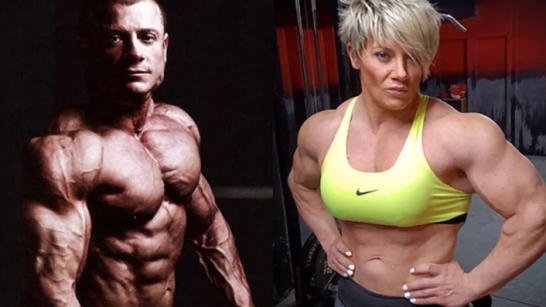
1972 – Janae Kroc (born: Matt Kroczaleski) is an American who previously competed as a professional powerlifter and competitive bodybuilder. In 2015, Kroc came out as transgender and genderfluid, taking the name 'Janae' and adopting female pronouns. She uses the name 'Matt' and male pronouns when referring to the time before her transition. Kroc served in the United States Marine Corps from 1991 to 1995 and was selected for presidential security duty serving under President Bill Clinton. The tour of duty included time in Washington D.C., providing security for military officers at the Pentagon and for some of the Joint Chiefs of Staff from 1992 to 1994. Assigned to security duty for Warren Christopher (then Secretary of State) during the United Nations conferences in 1993, Kroc was later assigned to the security force at the presidential retreat at Camp David from 1994 to 1995. In interviews, Kroc has described growing up in a trailer in a rural conservative area. Kroc started working out with cement-filled Sears weights at 6 years old, including doing 100 reps on a 10-pound dumbbell, and at 8 years old constructed a weight bench out of a 2x4 or 2x12[31] on cement blocks and made a barbell out of milk jugs filled with sand hung on a stick. Kroc weighed 118 pounds as a high school freshman, and, after graduating from high school at Standish-Sterling Central. In 2004, Kroc was diagnosed with testicular cancer. Kroc had three children with a woman named Patty; they split up in 2006. Kroc also married a woman named Lauren. Kroc says she was the "Manliest of the Manly Men", known as an "Ultimate Alpha Male" before transitioning. Kroc came out as transgender to friends and relatives (including three sons) around 2005. In April 2015, Kroc legally changed forenames from Matthew Raymond to Janae Marie, a name chosen by Kroc's mother. In July of that year, Kroc came out as both transgender and genderfluid. She is living as both genders, saying she often feels like two completely different people trying to share a body, fighting for control. Kroc goes by female pronouns, but uses male pronouns when referring to her life as Matt. In December 2015, Kroc's was the first featured among the top 63 most powerful comings-out of 2015. In regard to combined (squat, bench press, and deadlift) equipped powerlifting total, on April 25, 2009, in Iowa, Kroc set the male world record in the 220 lb. weight class with 2,551 lbs (composed of 738 pound bench press, 810 pound deadlift and 1003 pound back squat), which at the time was also the fifth highest total for the 242 lb. male weight class. Matt no longer held the record as of August 21, 2010, when a 2,715 pound total was achieved by Shawn Frankl (the man who held the record prior to Matt) in Ohio.
1977 – Marco Berger is an Argentine film director and screenwriter. He studied at the Universidad del Cine in Buenos Aires and made his directorial debut in 2007 with the short films Última voluntad and El reloj. His first feature film was Plan B, which was presented on a number of film festivals (Buenos Aires, Rome, London).But it was with the film Ausente (Absent) that he won won the Teddy Award for Best Feature Film at the Berlin International Film Festival for what the judging committee said was "an original screenplay, an innovative aesthetic and a sophisticated approach, which creates dynamism. A unique combination of homoerotic desire, suspense and dramatic tension." His Hawaii is a 2013 Spanish language gay romantic drama set in rural Argentina. it tells the story of two young men from different social backgrounds coming to terms with their growing attraction for each other. Marco Berger is openly gay.
1980 – John Lennon, English musician and peace activist murdered (b. 1940); There are stories of an early intimate relationship between Lennon and Brian Epstein that are probably true. Lennon was certainly a friend to Gay rights and LGBT people as Yoko has continued to demonstrate in her own works. On the morning of December 8, 1980, Annie Leibovitz came over to the Ono-Lennon's apartment to do a photo shoot for the Rolling Stone magazine. She had promised Lennon it would make the cover but she initially tried to get a picture with just Lennon alone. Leibovitz would recall that, "nobody wanted [Ono] on the cover." When Lennon insisted that both be on the cover. Leibovitz then tried to recreate the kissing scene from the Double Fantasy album cover, a picture that she loved. With the pictures in hand, Annie Leibovitz left their apartment. The Lennons spent several hours at the studio on West 44th Street before returning to The Dakota at about 10:50 p.m. Lennon was concerned about seeing five-year-old Sean before he went to sleep, so they returned to the Dakota instead of going out to eat. They exited their limousine on 72nd Street, even though the car could have been driven into the courtyard. Jose Perdomo (who was the doorman at the entrance), an elevator operator, and a cab driver all saw Mark David Chapman standing in the shadows by the archway. The Lennons walked past, and Ono opened the inner door — leaving Lennon alone inside the entrance. Chapman called out, "Mr. Lennon!" As Lennon paused to turn around, Chapman dropped into a "combat stance" and shot at Lennon five times with hollow point bullets from a Charter Arms .38 revolver. One shot missed, passing over Lennon's head and hitting a window of the Dakota building. Two shots struck Lennon in the left side of his back and two more in his left shoulder. All four wounds caused serious internal damage, and at least one of them fatally pierced Lennon's aorta.
1981 – The New York City Gay Men's Chorus performed a Christmas concert at Carnegie Hall, making them the first gay musical group to play there.
Burke was killed in a car crash on February 5, 2010. Following his death, Burke's memory and contribution to LGBT awareness in hockey was honored by several hockey teams. The "Brendan Burke Internship" was later established in his honor by USA Hockey for his work in hockey management and a documentary entitled The Legacy of Brendan Burke aired on CBC Television in November 2010. Brendan Gilmore Burke was born in Vancouver, British Columbia. His parents divorced in 1995 and in 1997 he moved with his mother to Boston, Massachusetts. During high school, Burke played hockey as a goaltender on the varsity team, but quit because he worried that his teammates would discover that he was gay. He told his family that he wanted to quit rather than spend the season benched off the active roster. After high school, became a student hockey manager at Miami University. During this time, he attempted to decide between a career in politics or hockey management, eventually deciding on the latter. Burke came out to his family during Christmas of 2007 and to his father, Brian Burke, then-general manager of the Anaheim Ducks, after attending a Ducks game in Vancouver. Brian as well as the rest of Burke's family were accepting of his sexuality.However, Brendan's father and older brother Patrick, also a hockey manager, were concerned about how this might impact Brendan's career in hockey, noting homophobia in the hockey world in particular. In November 2009, Burke came out to one of his teammates, Pat Cannone, after he was asked about his love life. He then came out to the rest of the Miami University hockey team, of which he was student manager, that he was gay. The story was leaked to ESPN.com. The Burkes appeared on the Canadian sports channel TSN, where Brendan Burke said he hoped his story would give other gay athletes and those working in professional sports the confidence to come forward. Burke was concerned that the news story on his sexual orientation might be distracting to the team, and approached the team's coach, Enrico Blasi, offering to walk away from the story if Blasi disapproved. With full veto power on the story, Blasi gave it his full support. His team was also accepting of his sexuality. Burke's public coming out was met with wide support from the press and fans, with the ESPN interview garnering praise from the hockey world. He received hundreds of emails and letters of support from gay athletes from across the continent. The news of his father's acceptance of his sexual orientation also earned Brian Burke praise from press and fans inside and outside the hockey world. The news further launched Brendan into advocacy, speaking about homophobia in hockey and encouraging discussion on the challenges faced by gay athletes in hockey and mainstream sports in general. As an advocate, Burke returned yearly to his high school to give talks on his experience coming to terms with his sexuality in a largely homophobic sports culture and the positive personal impact of his father's support. In a later TSN interview, Burke stated that he hoped that telling his story would allow gay athletes and pro sports workers to know that there were supportive, safe environments for them and would encourage them to step forward as well. PFLAG of Toronto, began using Burke's coming out story as a teaching tool, stating that the story could "change so many families across Canada, particularly because so many young boys are expected to grow up playing with a hockey stick and make their dads happy."His coming out story gained further attention from a large variety of news outlets in the days that followed. Interest in Brendan's story was attributed to both his relation to his father and "hockey's sometimes homophobic culture." Burke died February 5, 2010, at the age of 21 in an automobile accident. While driving in heavy snow near Economy, Indiana, his Jeep Cherokee slid sideways into the path of an oncoming truck, killing him and his friend, Mark Reedy, a Michigan State University athlete, who was in the passenger seat. The impact of the collision fractured the base of Burke's skull, killing him instantly. The vehicle was mangled to such an extent that police officers and paramedics could not tell that Reedy was inside the vehicle, dead as well. A moment of silence was observed prior to the Toronto Maple Leafs vs. Ottawa Senators game on February 6, 2010. Another moment of silence was also observed prior to the Miami University hockey game vs. Lake Superior State on February 6, 2010. The team also named him honorary first star of the game. The St. Louis Blues also held a moment of silence for Brendan Burke prior to their Saturday night game against the Chicago Blackhawks. The funeral was held in Canton, Massachusetts, where his family lives, with nearly 1,000 people, including the full roster of the Toronto Maple Leafs, in attendance. In April 2010, USA Hockey established the "Brendan Burke Internship" in honor of his work in hockey, describing it as being given annually to a recent college graduate seeking to pursue a career in hockey operations. On November 26, 2010, the Canadian Broadcasting Corporation television newsmagazine the fifth estate aired "The Legacy of Brendan Burke", a documentary detailing Burke's story and the discussion it generated about homophobia in hockey. During the 2010 Winter Olympics in Vancouver, the United States Men's Hockey Team wore dog tags inscribed with the words "In Memory of Brendan Burke". In June 2010, Chicago Blackhawks president John McDonough announced that he would be sending the team's recently won Stanley Cup with defenseman Brent Sopel who would march in the 2010 Chicago Gay Pride Parade. Sopel began his NHL career with Vancouver and became friends with Brian Burke when he was the general manager there. Sopel stated to the press that honoring Burke's legacy and his father's example of familial support and tolerance was one of his reasons for marching in the parade. In recognition of the one year anniversary of Burke's death, the RedHawks wore special sweaters during their weekend game on the February 5, 2011. Burke's older brother Patrick Burke announced in a column on Outsports.com that the Burke family promised their "unwavering, unremitting, relentless support" for the cause of equality in sports and to continue working to end homophobia in hockey. Since Brendan's death, his father has continued advocating against homophobia in professional sports, giving speeches at schools, marching in the annual Toronto Pride Parade, and working with former NFL commissioner Paul Tagliabue, whose son is also openly gay, through PFLAG.
1996 – In England, South Yorkshire Police placed a full-page ad in "Gay Times" as part of a recruitment campaign.
2004 – The New Zealand Parliament approves civil unions with a vote of 65-55. Full marriage equality passes in 2013.
[{(o)}]|[{(o)}]|[{(o)}]|[{(o)}]| [{(o)}]|[{(o)}] |
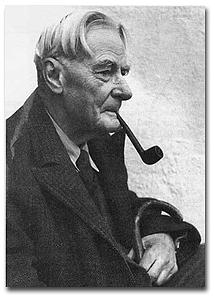
 Added 2024
Added 2024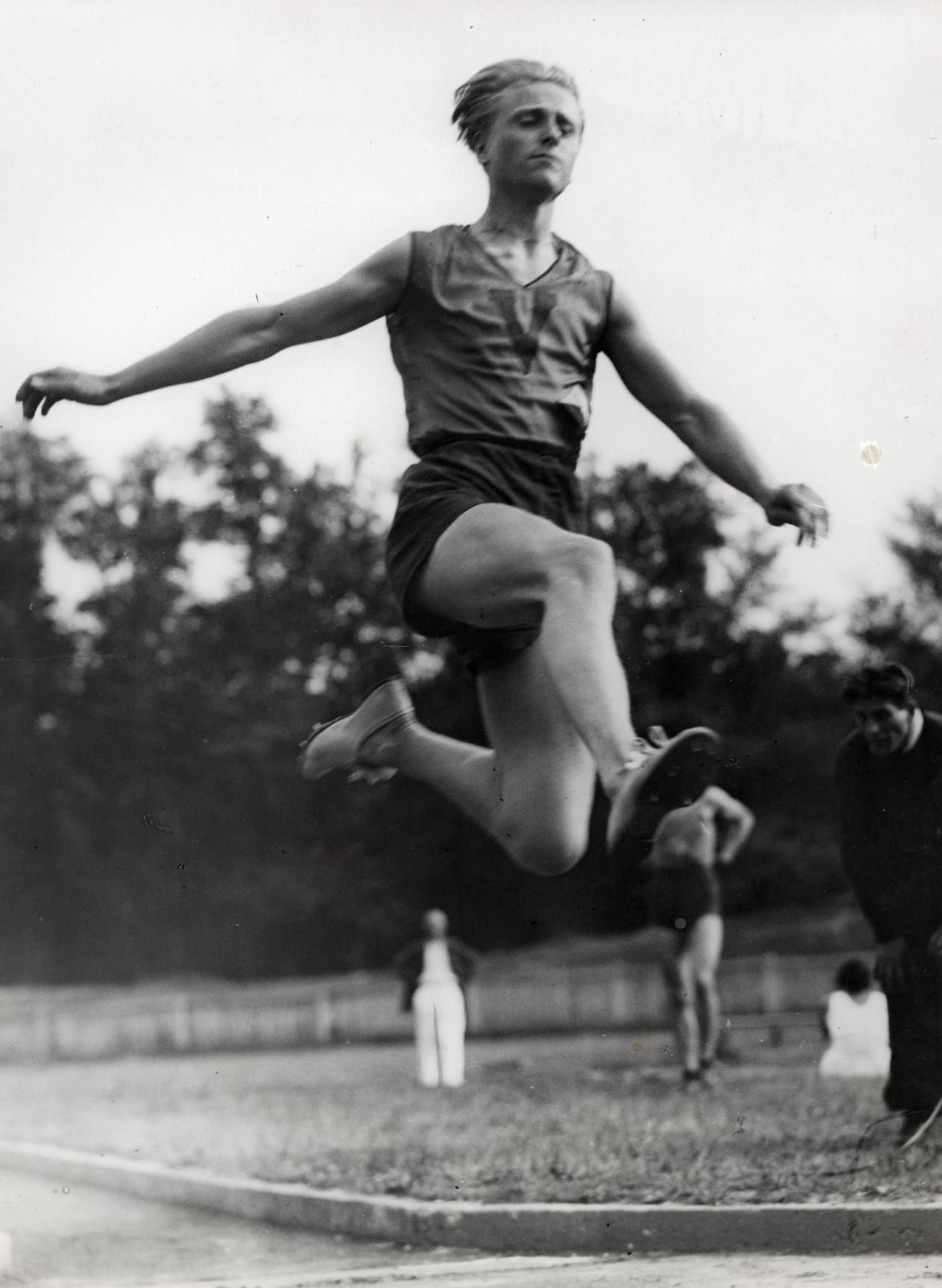
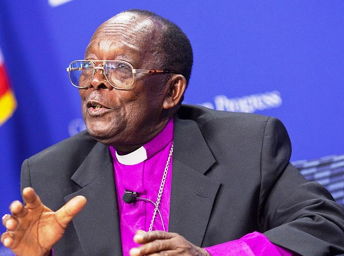
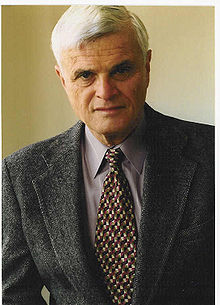
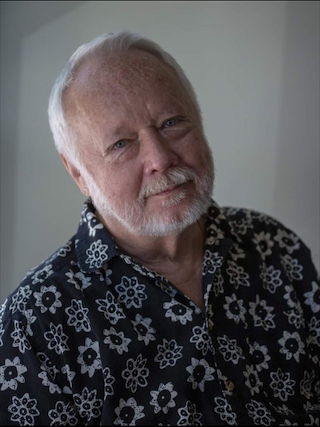
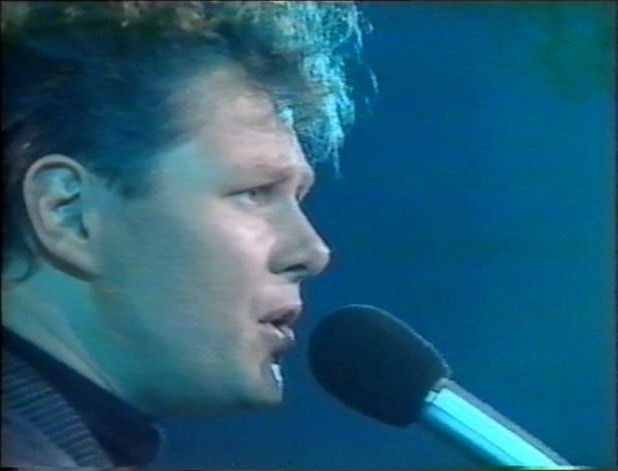
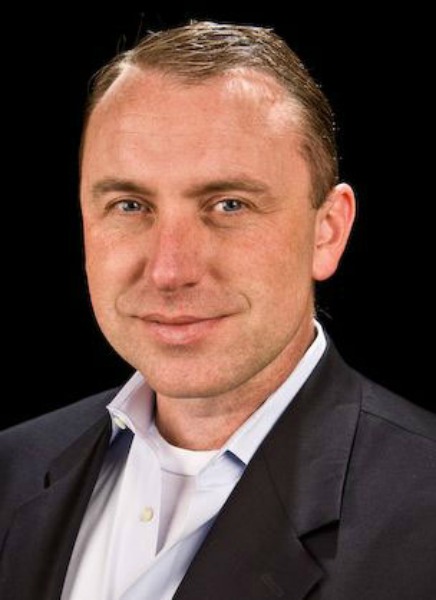
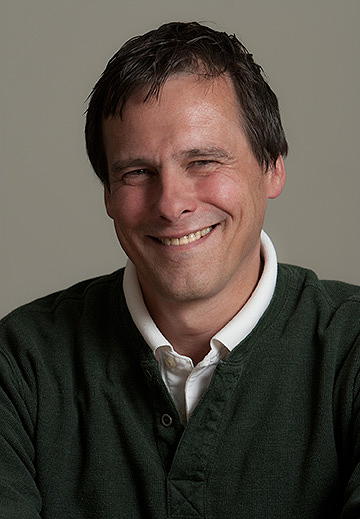
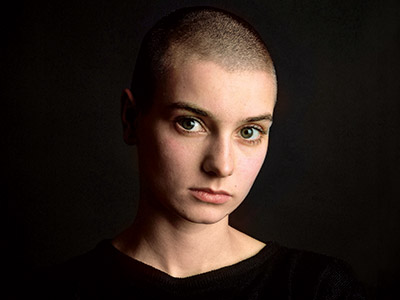
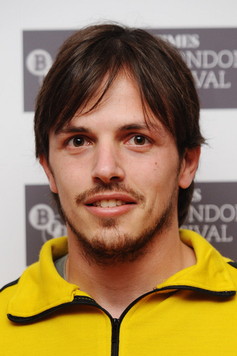
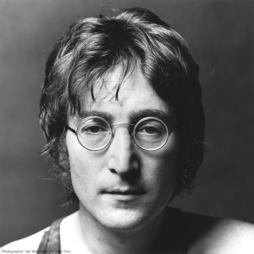
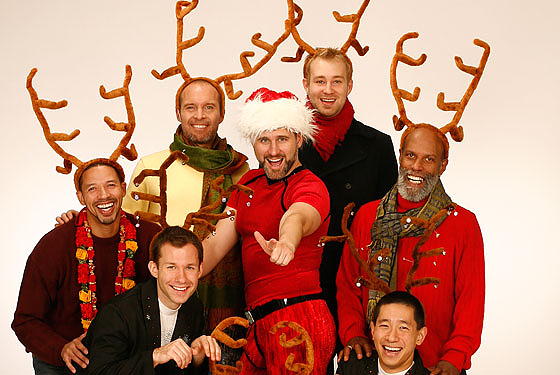
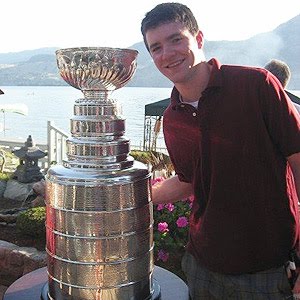
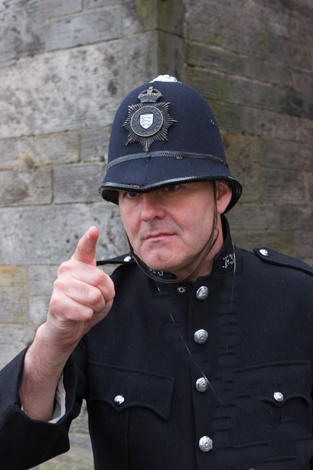 "I Want You!"
"I Want You!"